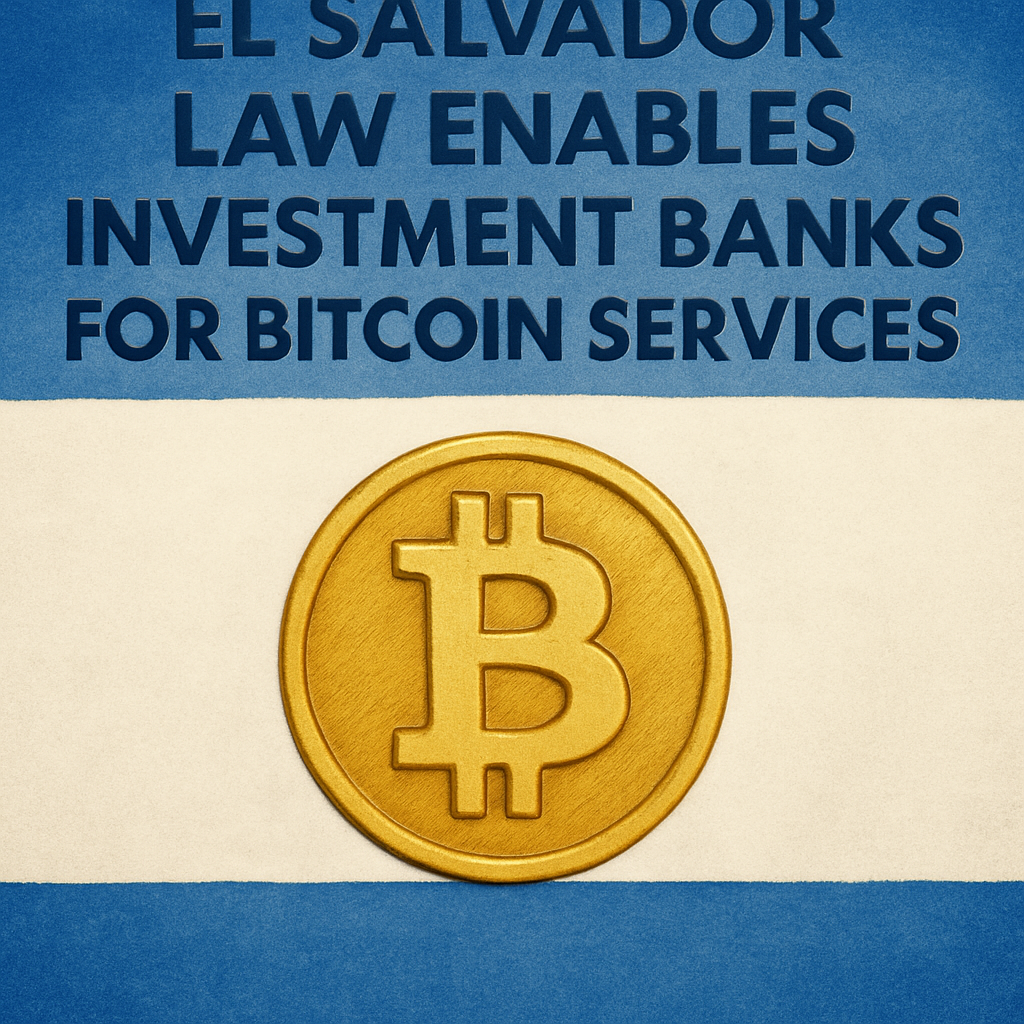El Salvador’s Legislative Assembly approved a landmark Investment Banking Law aimed at positioning the country as a regional financial hub for digital assets. The statute creates a new category of banking institution focused exclusively on serving sophisticated investors with at least $250,000 in liquid assets. Eligible assets include Bitcoin, U.S. Treasury bonds, tokenized products, gold and cash.
The law requires investment banks to maintain a minimum share capital of $50 million and to operate independently from traditional commercial banks. These specialized institutions may apply to the Central Reserve Bank for authorization to function as digital asset service providers, issuers of crypto tokens and dedicated Bitcoin service entities.
Under the new framework, the Superintendency of the Financial System will supervise compliance, transparency and investor protection, while enforcing strict risk management and reporting standards. Service offerings can encompass corporate transaction structuring, asset management, lending, financial advisory and structured financing denominated in Bitcoin and U.S. dollars.
Proponents argue that the regulatory clarity and targeted oversight will attract international private capital, global financial organizations and high-net-worth individuals seeking a secure jurisdiction for crypto operations. The law is viewed as a strategic move to leverage El Salvador’s pioneering adoption of Bitcoin as legal tender and to diversify the national economy.
The legislation follows announcements from the National Bitcoin Office regarding the imminent establishment of dedicated Bitcoin banks. Officials believe that the new class of investment banks will drive job creation, enhance institutional confidence and reinforce El Salvador’s reputation as an innovative destination for digital asset businesses.
Critics caution that limiting services to sophisticated investors may restrict broader access, but supporters maintain that the specialized approach is necessary to mitigate risks and foster sustainable growth in the nascent crypto market. The law is expected to take effect upon publication, with licensing applications to be processed in the coming weeks.

Comments (0)